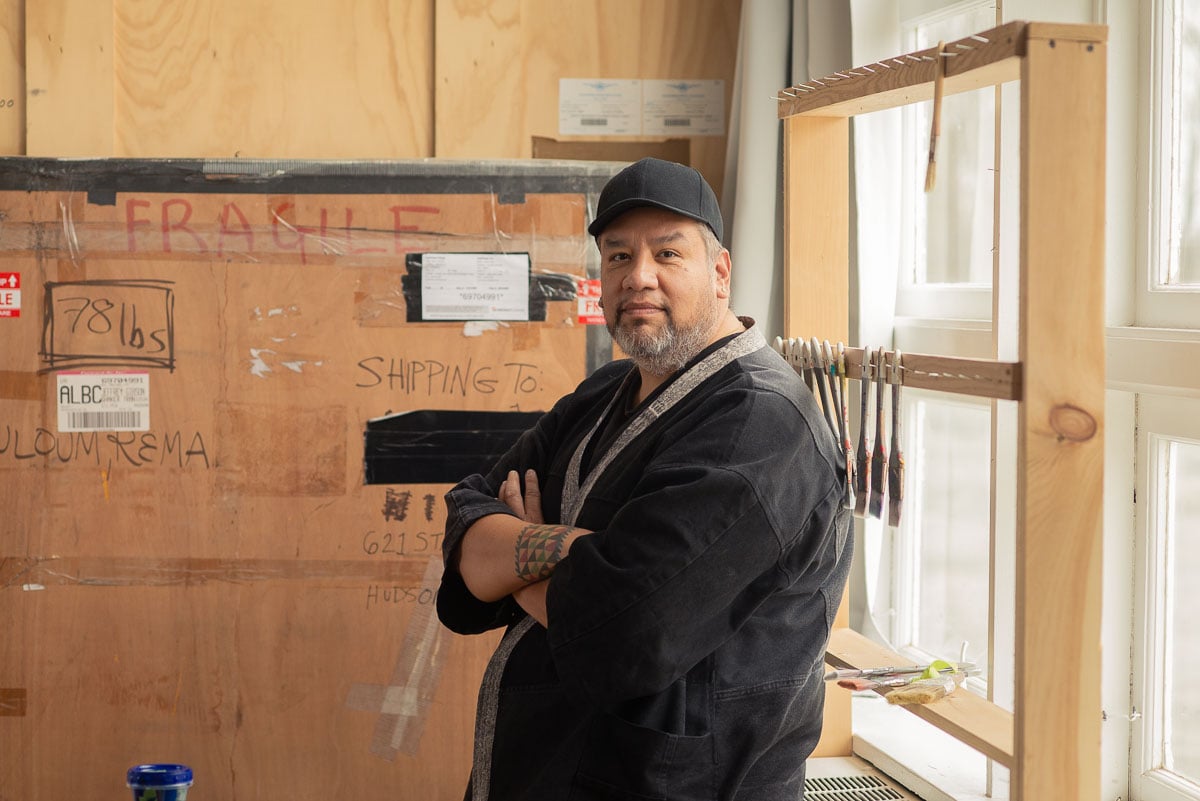
Choctaw and Cherokee artist Jeffrey Gibson, who was recently selected to represent the United States at the 2024 Venice Biennale, is suing Chicago’s Kavi Gupta Gallery for allegedly withholding more than $600,000 in sales proceeds.
In a complaint filed at New York’s Northern District Court in May, Gibson said that he began consigning pieces through Gupta’s gallery in late 2017. He claims the two parties settled on a typical 50-50 profit split, with the understanding that Kavi Gupta would deduct the cost of framing “off the top” of the purchase price before equally allocating the balance of sales.
The gallery initially adhered to that agreement, Gibson said, but eventually fell behind and failed to pay the artist his share. Gibson alleged that Gupta now owes him $638,919 in unpaid proceeds.
“Because the gallery has stalled and failed to even negotiate in earnest a mutually acceptable payment plan, Gibson is now forced to commence this action to seek the full amount of sales proceeds which belong to him,” the complaint reads.
Jeffrey Gibson, STAND UP – SPEAK UP (2020). Courtesy of Sikkema Jenkins.
Kavi Gupta, the gallery’s founder and namesake, addressed Gibson’s claims in an affidavit filed on August 4. In the document, he corroborates the 50-50 deal between the gallery and the artist, albeit with one critical distinction: that all production expenses, not just framing costs, were to be taken off the top of sales before the proceeds were shared.
In other words, Gupta argued that he doesn’t owe the artist because the gallery already fronted him the money to make his work. “These expenses must be reimbursed before any profits can be split,” the dealer said.
“Since 2018, the gallery invested in reimbursable production and vendor costs including, but not limited to, videographers, photographers, performers, and materials such as clothing, drums, metals, beads, and other components, all utilized to create and produce Gibson’s work,” reads the dealer’s affidavit. “At no time were such reimbursable costs limited to framing expenses.”
In addition to production costs, Gupta claims the gallery has invested “over $764,600” to develop and promote Gibson’s career and work.
Attorneys for Gibson and Gupta did not immediately respond to requests for comment.
In recent years, Gibson has become one of the institutional art world’s most celebrated artists. His colorful art, which blends Native American craftwork with references to politics, pop culture, and his queer identity, has been the subject of critically acclaimed shows at the Denver Art Museum, the Blanton Museum of Art, and the Institute of Contemporary Art San Francisco, among others. In 2019, he was awarded a MacArthur “Genius” Grant.
Next year, Gibson will become the first indigenous artist to have a solo exhibition at the U.S. Venice Biennale pavilion.